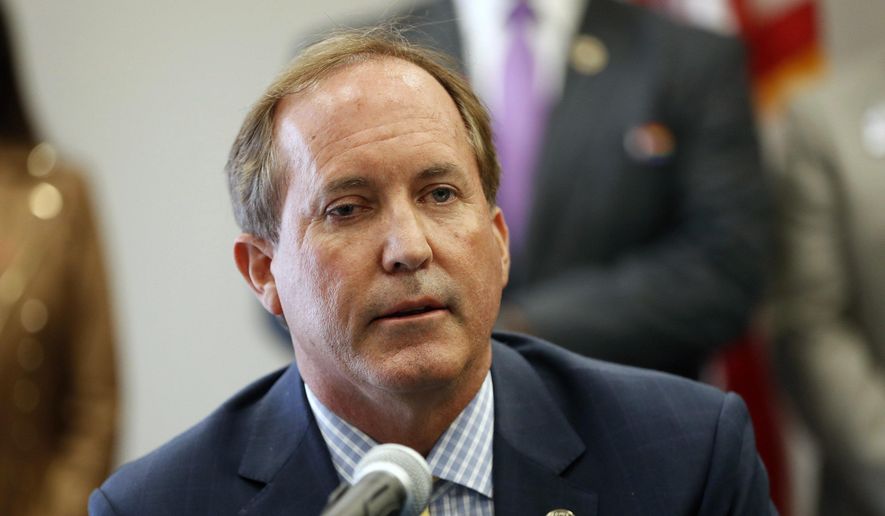Texas Attorney General Ken Paxton said Wednesday he wants to fight his legal battle against Twitter in Texas rather than in the San Francisco-based federal court preferred by the social media giant.
Twitter filed a federal lawsuit this week claiming that its response to Texas’ civil investigatory demand seeking information about its censorship policies would reveal confidential information. And it accused Mr. Paxton of retaliating over the company’s ban on former President Donald Trump.
Twitter, whose lawsuit accuses Mr. Paxton of violating the company’s First Amendment rights, wants a judge to block Mr. Paxton’s probe.
Mr. Paxton sent several similar demands to other tech companies that were not met with such fierce opposition as from Twitter.
He said he is confident the legal dispute will get resolved in his state.
“It doesn’t make any sense that this is in California since this is a Texas issue, so our goal is to get it back to Texas and to continue asking the right questions,” Mr. Paxton told The Washington Times on a conference call organized by the Media Research Center. “And my assumption is they did this because they didn’t want to answer our questions. There are certain things they don’t want out in public and, unfortunately, that’s where we’re at.”
Mr. Paxton’s legal battle with Twitter is part of a larger offensive by Republican attorneys general against what they perceive as Big Tech’s censorship of conservative users.
Twitter accuses Mr. Paxton of acting in bad faith. In its lawsuit filed on Monday, Twitter said it tried to limit the scope of Mr. Paxton’s demand but got nowhere.
“Instead, AG Paxton made clear that he will use the full weight of his office, including his expansive investigatory powers, to retaliate against Twitter for having made editorial decisions with which he disagrees,” Twitter’s attorneys said in the lawsuit. “Now Twitter, already targeted because of its protected activity, is left with the untenable choice to turn over highly sensitive documents or else face legal sanction. The First Amendment prohibits such acts.”
Mr. Paxton told reporters that his questions were “very basic” and Twitter was simply afraid of answering.
On the conference call, Mississippi Attorney General Lynn Fitch said she is asking constituents to share their stories of mistreatment by Big Tech. She plans to present their stories as part of the case against the tech platforms. Ms. Fitch said she was victimized by Twitter when she recently tried to post a video about ending human trafficking. Twitter restricted the post.
“If Twitter or any of these platforms can just be so cavalier that they take down an attorney general, wow, that means they’re going to take all of us down,” Ms. Fitch said. “And they’re looking to do that just as Ken said. They choose to do that because they can do that. We all have to continue to work together, we have to end this censorship.”
Ms. Fitch said Twitter cracked down on her video 37 seconds after she posted it, which led her to conclude that they censored her without watching the entire video. Twitter uses a combination of automated and manual content moderation to govern its platform, which allows it to respond in a quick way that would not be possible with a manual review of every post before it is moderated.
• Ryan Lovelace can be reached at rlovelace@washingtontimes.com.




Please read our comment policy before commenting.